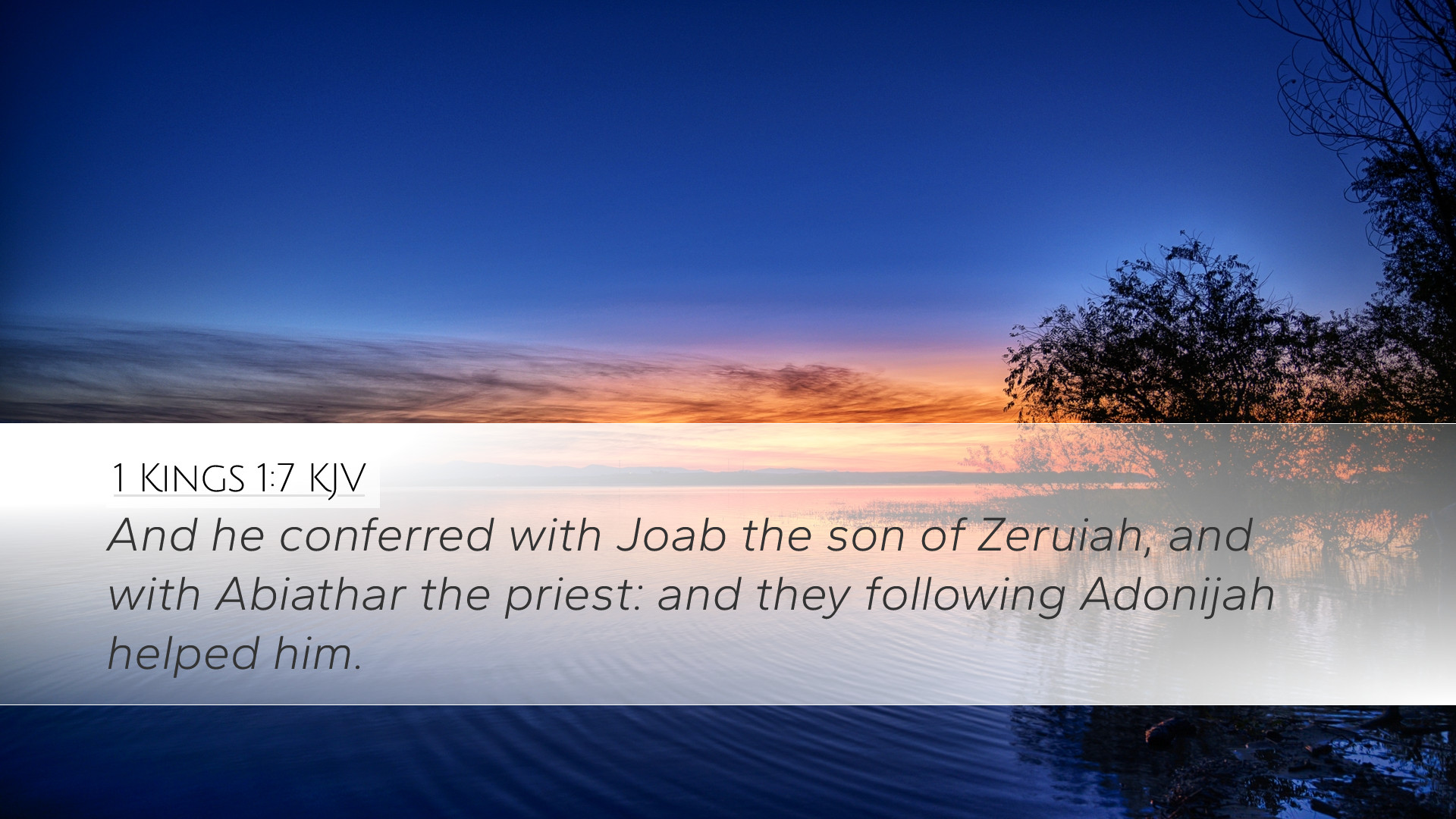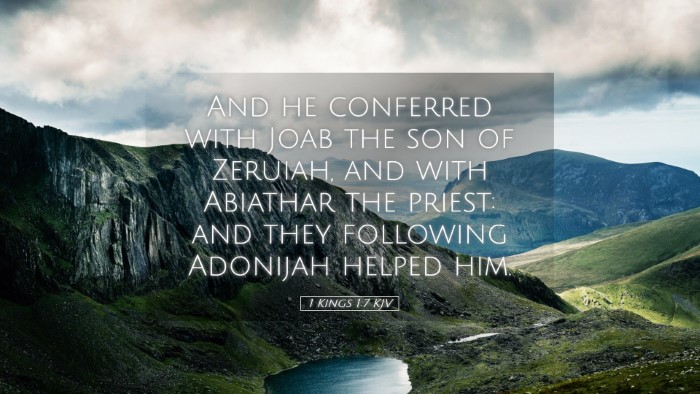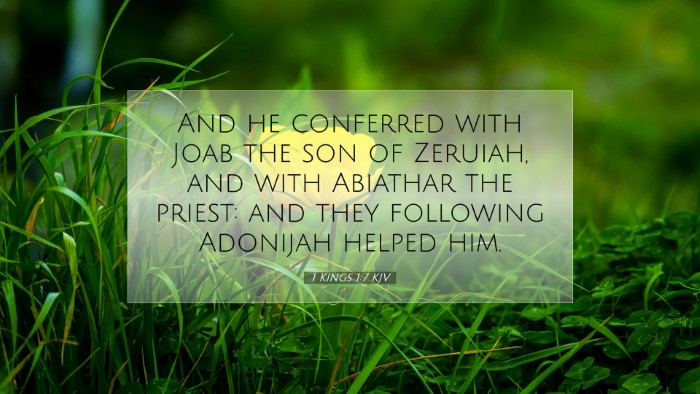Commentary on 1 Kings 1:7
The verse 1 Kings 1:7 states: "And he conferred with Joab the son of Zeruiah, and with Abiathar the priest: and they followed Adonijah, helped him." In this verse, we see a pivotal moment in the narrative of the succession of King David. The plot thickens with political intrigue, and various factions begin to emerge, each vying for power in the transition of leadership.
Historical Context
David's reign had been one of both triumph and challenges. As he aged, the question of succession loomed large. According to the public domain commentaries, David's sons, especially Adonijah, sought to establish their own claim to the throne. This specific verse captures a clandestine meeting where Adonijah seeks alliances from powerful figures—Joab, the military commander, and Abiathar, the high priest.
Insights from Commentators
Matthew Henry notes that this confederation reveals the character of Adonijah. He was ambitious and daring, willing to scheme in order to gain favor and support for his claim to kingship. Joab, who had been a loyal servant to David, and Abiathar, who had served faithfully as a priest, both have significant weight in their endorsements for the throne.
Albert Barnes emphasizes the importance of these alliances. Joab, being a military leader, signifies the martial strength behind Adonijah’s claim. Abiathar, representing the spiritual authority, lends legitimacy to the bid. Barnes suggests that their support indicates a challenge to the promised succession of Solomon, David's chosen successor.
Additionally, Adam Clarke reflects on the moral implications of this alliance. While Adonijah's actions can be seen as politically savvy, they are also steeped in denial of God's will as expressed through David. Clarke's narrative suggests a commentary on the human tendency to sidestep divine plans in favor of personal ambitions.
Theological Implications
The union of Joab and Abiathar with Adonijah also serves as a cautionary tale about the dangers of political alliances that are not anchored in righteousness. As leaders in their respective capacities, their deviation from the support of God's appointed successor highlights a profound lesson about commitment to divine leadership.
Lessons for Leaders
- Integrity in Leadership: Today's leaders must navigate alliances carefully, ensuring that their choices align with God's will.
- Discernment: The verse calls for discernment to recognize when political ambition is at odds with divine purposes.
- Accountability: Leaders should remain accountable to God's established authority, as the consequences of straying from it can be dire.
Conclusion
In sum, 1 Kings 1:7 encapsulates a critical moment of transition in Israel's history. The alliances formed by Adonijah serve as a foreshadowing of the conflict and division that will follow. By examining the motivations of these leaders through the lens of the public domain commentaries of Matthew Henry, Albert Barnes, and Adam Clarke, we glean vital insights into the nature of human ambition, the importance of godly counsel, and the need for integrity in leadership.
As we reflect on this scripture, it becomes clear that the lessons contained herein are timeless, offering guidance for those who seek to govern in accordance with God's will.


